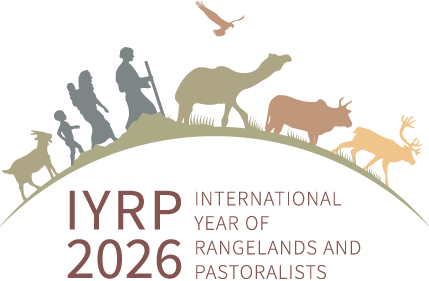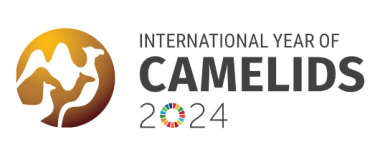The UN has designated 2024 as the International Year of Camelids. Camels, llamas, alpacas, vicuñas and guanacos are an important source of livelihood for millions of families - most of them pastoralists - in dryland and mountainous rangeland ecosystems around the world. The Year is meant to raise the public's and policymakers' awareness of the significant role of camelids in protecting ecosystems, conserving biodiversity, assuring food security and adapting to climate change. The resolution for the International Year of Camelids, proposed by the Government of Bolivia and presented by Ecuador as Country Chair of the Group of Latin American and Caribbean Countries (GRULAC), was approved by the UN General Assembly on 17 October 2017 upon recommendation by FAO (Food and Agriculture Organization of the UN).
Until FAO starts preparing for this year, several organisations involved in the IYRP initiative, including the League of Pastoral Peoples (LPP), are drawing attention to the IYC. Below is an overview (18-slide PPT) on the IYC prepared by the LLP.
The visual identity of the IYC was presented at a side event "Towards the International Year of Camelids: perspectives and challenges" during the FAO Conference on Sustainable Livestock Transformation in Sept 2023. On this occasion, a group of civil-society organisations issued a statement (see below) to draw the attention of governments, donors, policymakers, scientists and the private sector to the distinct ecological and cultural aspects that should be considered when striving to support the development of camelid-keeping systems and related value chains.
FAO officially launched the IYC 2024 on 4 December 2023 in Rome, Italy (see recording below).
The first international event of the IYC2024 was the International Workshop on Camelid Pastoralism, held on 5–10 January 2024 in Sadri, Rajasthan, India, hosted by Lokhit Pashu-Palak Sansthan (LPPS), the League for Pastoral Peoples (LPP) and the Godwar camel pastoralist milk producers. See below the statement issued by the workshop participants.
Also in 2024, welt-sichten and Misereor (Germany) brought out a dossier on camelids worldwide for the IYC2024 and the IYRP2026, in English, Spanish and German (see files below).
The third edition of the “Perspectives on Pastoralism Film Festival”, organised on behalf of the Coalition of European Lobbies for Eastern African Pastoralism (CELEP) primarily by the German Institute for Tropical and Subtropical Agriculture (DITSL), Agrecol Association for AgriCulture & Ecology, Vétérinaires Sans Frontières (VSF) Belgium and the Centre for Research and Development in Drylands (CCRD) in Kenya, includes a special thematic focus on films about camelid-keeping systems, to contribute to the IYC 2024. The film-festival team selected 17 films for showing at events highlighting camelids during the IYC – and subsequently. The documentary films from Africa, Andes, Asia and Australia depict camelid husbandry, production and trade of animals and processed products, links between camelids and their herders and environment, or associated participatory research. The films range from 1:18 to 59 minutes in duration. See below: "17 recommended films on camelids".


